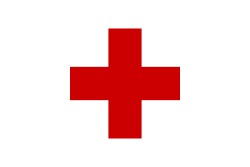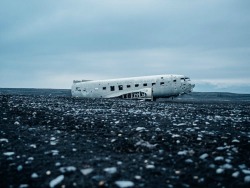
Apocalypse, Doomsday, Judgment Day, Armageddon — for those of you who believe that the end of the world as we know it is drawing near, it doesn’t matter what you call it, as long as you’re prepared for it. Right? Right. If you’re reading this article, and you are a prepper, then (1), let’s be friends, and (2) here are some of the most important skills that you, an advanced prepper, should know in order to be fully prepared for that day.
Find yourself without these skills and your life will be significantly more difficult. While the skills in this list may seem complicated, with hard work and dedication, they can be mastered. Don’t let the gravity of these skills dissuade you from learning. You’ll feel much more comfortable knowing these abilities.
1. Cardiopulmonary Resuscitation (CPR)
You can become CPR certified through the American Red Cross, which will, most likely, offer a class at a location near you. Community Centers, employers and churches may offer a class or two at their locations as well, having trained professionals leading the class. You can also get your BLS certification, which includes how to administer oxygen, splinting broken or dislocated bones and how to stop excessive bleeding.
2. First Aid

This covers a slew of topics, including how to treat burns, cuts and bites, along with how to stop and administer to those who are bleeding and to those with frostbite; how to perform the heimlich maneuver, and so much more. First Aid courses are usually offered in conjunction with CPR classes through the American Red Cross and National Safety Council. Once you pass, your certification card should be valid for two years.
3. Surviving Outdoors
There are so many factors that go into surviving in the outdoors. A few of them include:
Building a fire – No excuses. Know how to do this.
Purifying Water – Purchase a filter and water purification tablets.
Building a shelter – Learn how to build the following: A-Frame, Lean-to, frame-and-tarp and Cocoon. To build these shelters, you should know how to tie various knots and use a hatchet.
Entomology – This is the study of insects and will help you identify poisonous and non-poisonous bugs, as well as those rich in fiber and protein.
Botany – This is the study of plants. Having this knowledge will save you from drudging through poisonous plants. You will also be able to identify edible plants and flowers, and foliage is best for all-natural salves.
Fishing and hunting – You can procure a license for both activities in most states online via the Department of Fish and Wildlife.
4. How to Handle a Crisis
Chaos is sure to ensue when the end is near. As a doomsday prepper, you need to know how to stay calm and keep a level head despite what is happening around you. If you can do this, then you and your family are more likely to survive.
5. Bartering
In an apocalyptic setting, money will no longer be of value. You need to know how to make smart trading decisions. You’ve got to give something to get something.
6. HAM Radio/Communications
Knowing how to operate a HAM Radio will make you an invaluable member of your community come D-Day. In order to send communications via a HAM Radio, you will need a license to do so. You should, without a doubt, know emergency radio frequencies, also own and know how to use walkie talkies.
7. Mend Clothes
Target isn’t going to be open WTSHTF, so we suggest learning how to sew on a button, whipstitch a hole and put on a patch to make your clothes last.
8. Spending Time Alone
The hard truth? You might end up alone during the last days. Prepare for this harsh reality by doing things by yourself once or twice a week.
9. Car Maintenance
If you have a car during Armageddon, it sure would be great if you knew how to maintain it. Know how to change the oil, change the tires, replace parts, and if you lose your keys, start the ignition without them.
10. Navigation Skills
You may not want to rely on Siri to get you through Doomsday. Learn how to use a compass, read a map and navigate when it’s dark using the stars.

It can be a frightening to think that one day, the world might end. True or not, we should all be prepared for disasters and hardships to come. There’s an old adage: better to need it and not have it, than need it and not have it. The logic of that adage is applicable here. Even if we are never parties to a cataclysmic event in our lifetimes, the skills in this list will be important for everyday activities. Preppers, get to prepping. Good luck.
Featured Photo Courtesy of: Georgia National Guard

6 comments
Top 10? More like a BS merit badge. Where’s the advanced part? This list is basic skills from high school. Change the oil? Seriously?
I would think a good Top 10 skill would be knowing how to hide, cover your tracks (including your garbage–bodily and otherwise) and sadly, knowing how to eliminate / evidence of dead bodies which will stink a lot and could attract unwanted attention.
I’ve wondered about advanced skills and would put things on the top ten list like flying a plane or growing antibiotics or surgery to remove a bullet or game smoking and canning or carpentry and engineering or sewage management or blacksmithing or organic gardening as critical skills. Many of the listed skills mark the minimum I would consider Prepping in the proper sense. In fact what Prepper skills would be more basic than those listed?
Unfortunately, however, even those skills listed in the article are few and far between given the skillsets of many who consider themselves preppers. What skills are common? Collecting information, ordering gear off the Internet, and stocking up on guns and ammo. Well, at least I’ve got those last three covered.
as a matter of fact, I have flown a plane. (full scale, all by myself) I have a HAM radio License…
believe me, You still wouldn’t want me in your prepper group. (BUT) You should remain on the lookout for people with skills, near your circle, that would be useful to you.
incidentally,
someone out there, has probably put each of those skills/arts into a book, and communicated them to you. (if only you find the right book) you could develop into the artist you are meant to be. the art of flying an airplane, for example, has been explained beautifully, by Langewiesche. (Stick and Rudder)
no pilots library would be complete without it, but only if he/she has actually read it.
I would think that gardening/farming/animal husbandry should be very high up on any Top 10 SHTF list. Stored supplies won’t last forever and hunting/fishing may be iffy, if not impossible in any major disaster situation! Remember that when you are out hunting or fishing your home may be attacked or you may become the target for other hunters looking for anything. I hate to sound Hollywierd-ish, but you could be the next day’s special meal! In a nuclear war scenario, all exposed food sources could be radioactive, neither nutritious nor delicious! Also, there is a lot more to hunting and fishing than just buying a license from a government agency that may not even exist anymore! The only item on this list that I personally disagree with is the need for a Ham radio since (unless it’s someone you already know) you won’t know the real intentions of the person talking to you, friend or foe? Life after a SHTF won’t be like a patriotic novel, you won’t be rebuilding the USA, or probably even building a new society, at best, you’ll be handing on for dear life and the lives of your children if you’re prepared and maybe a bit lucky! GLAHP!